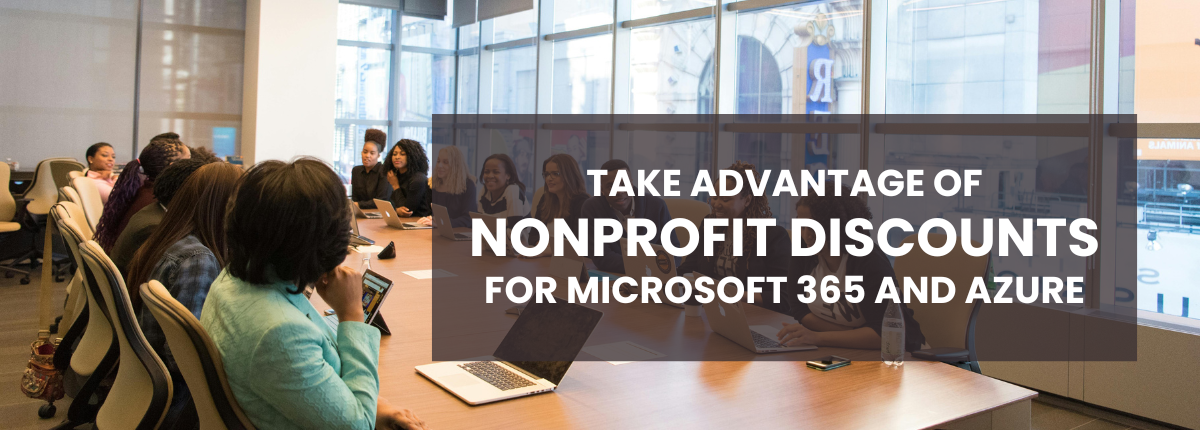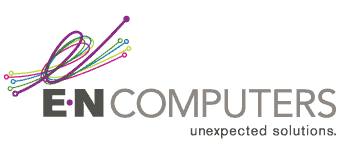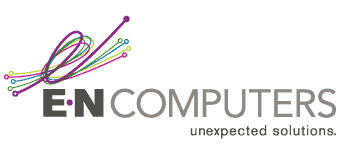

Content Manager, E-N Computers
Updated June 16, 2025
As a nonprofit, you likely face unique IT management challenges. You need to provide your organization with high-quality IT service, but perhaps on a more limited budget than a similarly sized for-profit corporation.
Fortunately, many companies recognize the challenges of nonprofit companies and want to help them to get access to high-quality tools. One such company is Microsoft. For many years, they have offered steep discounts on their cloud-based services like Microsoft 365 and Azure.
At E-N Computers, we’ve helped dozens of nonprofit organizations in Virginia, Maryland, and Washington, D.C. to make better use of technology, even when facing budget constraints. One way we’ve done that is by leveraging free and discounted cloud offerings. These products can give your business the agility it needs to overcome current and future challenges, especially when it comes to workplace flexibility.
But in talking to many nonprofits, we have found that they aren’t aware that they can receive free and discounted cloud services from Microsoft. Or they aren’t sure how to migrate to the cloud in a way that minimizes disruptions and maximizes the value they receive for it.
In this article, we’ll look at the free Microsoft cloud products and discounts that nonprofits are eligible for. Then we’ll look at some strategies that can help you to leverage these products effectively.
QUICK ANSWER:
What Microsoft discounts and grants are available to nonprofits?
Microsoft for nonprofits offers licenses for 60–75% less than the commercial cost. E-N Computers helps nonprofit organizations develop an IT strategy that takes advantage of this significant savings to improve productivity and security.
Effective July 2025, Microsoft has discontinued its nonprofit grant program for Business Premium and E1 licenses. Grants remain available for Business Basic.
Who is eligible for Microsoft nonprofit discounts?
Microsoft lists five nonprofit eligibility criteria on their website for the cloud discount program. These include:
- Organization eligibility: In the US, your organization must be registered as a 501(c)(3) nonprofit with the IRS.
- Mission eligibility: Microsoft intends this program to benefit organizations that are making an impact in their communities. So not all organizations that are registered as nonprofits are eligible. Check Microsoft’s website for the most up-to-date criteria.
- User Licensing: Only certain users associated with your organization are eligible for free or discounted licenses (more on that below).
- License Restrictions: Only your organization can use the licenses assigned to it, and any for-profit or ineligible arms cannot use the discounted licenses.
- Non-discrimination: Microsoft requires that organizations participating in the discount policy adhere to a policy of non-discrimination.
Who can use my organization’s discounted licenses?
Microsoft restricts who in your organization may use free and discounted licenses. The main target for the discount programs is regular paid staff and unpaid executive staff, including board members, directors, officers, and so on. This group may use both free and paid licenses.
Unpaid general volunteers and contract or temporary staff are only eligible to use discounted (paid) products. They cannot use free (“granted”, in Microsoft terms) items like Business Basic licenses.
Finally, beneficiaries, members, and donors of your organization – those who are not directly involved in running or working for your organization – are not eligible for either free or discounted Microsoft cloud products.
Free and discounted Microsoft 365 licenses for nonprofits
The main resource that Microsoft makes available to nonprofits is access to discounted Microsoft 365 licenses. This includes up to 300 free Business Basic licenses, and discounts for Business Standard, Business Premium, and Nonprofit Enterprise F3, E3, and E5 licenses.
What’s included with free Microsoft 365 licenses?
The free Microsoft 365 Business Basic license include more than enough features to get your nonprofit started with cloud collaboration and productivity. They include hosted business email, web versions of Office products (Word, Excel, PowerPoint), team Intranet sites hosted on SharePoint Online, meetings, chat and collaboration via Microsoft Teams, OneDrive online storage, and 24/7 phone support.
What paid MS365 licenses are available for nonprofits?
Microsoft offers numerous MS365 options to nonprofits. The Business tiers are suited for small-to-midsize organizations with up to 300 users. The Business Standard and Business Premium tiers both include the full suite of Office applications, along with collaboration and conferencing features. The Premium tier adds a Windows 10 Pro license.
The Enterprise tiers include added features that are useful to larger organizations. They include entitlements to use Azure Active Directory and Intune cloud-based device management. The F3 license is similar to the Business Basic tier in that it does not include the desktop or mobile versions of the Office apps. For those, you will need the E3 license. The E5 license adds more enterprise features, such as telephony and added cybersecurity protections.
What’s the difference between business and enterprise MS365 licenses?
The main difference between the Business and Enterprise Microsoft 365 tiers have to do with Active Directory integration. The Enterprise tiers can be integrated with an on-premise Active Directory installation for user management, while the Business tiers cannot.
Also, the Enterprise track offers a high-tier E5 license, which includes more enterprise features like Exchange Advanced Threat Protection for enhanced email security, PTSN conferencing integration, and cloud PBX. E5 licenses also include Power BI Pro for big data analytics.
How much do Microsoft 365 licenses cost for nonprofits?
As of March 2025, these are the prices listed at TechSoup for nonprofit Microsoft 365 licenses:
- MS 365 Business Basic: free
- MS 365 Business Standard: $3 per user per month
- MS 365 Business Premium: $6 per user per month
- MS 365 Nonprofit F3: $2 per user per month
- MS 365 Nonprofit E3: $9 per user per month
- MS 365 Nonprofit E5: $23 per user per month
Watch: Thomas Explains MS365 for Nonprofits
Listen as our Director of Technology, Thomas Kinsinger, explains the various Microsoft discounts available to nonprofits in this brief video.
Annual Azure credit for nonprofits
Another benefit that Microsoft offers to nonprofits is $2,000 in Azure cloud compute credit per year. This can be a great way to begin investigating hybrid cloud infrastructure for your organization.
Smaller nonprofits may even be able to migrate all of their on-premise infrastructure to Azure while staying within the $2,000 per year credit. This could include your file server and SQL server. For domain controllers, we recommend making use of Entra ID, which comes with Business Premium licenses.
Plus, Microsoft offers free extended security updates when you migrate on-premise Software Assurance licenses to Azure. If your organization still depends on any Windows Server 2008 or SQL Server 2008 workloads, migrating them to Azure entitles you to three additional years of security updates.
How to leverage Microsoft’s nonprofit cloud discounts in your organization
While the sticker-price savings on these products can be significant, you’ll need to consider the total cost of ownership (TCO) – including migrating data, retraining employees, and ongoing management of your cloud-based services.
Fortunately, Microsoft and their partners have developed a number of tools that can help you to migrate to the cloud quickly and easily. We have helped a number of organizations to make the move successfully, with minimal impact on their operations.
Your organization’s path to making use of Microsoft’s cloud service discounts will depend on where you are now, as well as your future IT strategy. Below are a few common scenarios that we’ve helped our clients with.
Migrating from on-prem to Microsoft 365 cloud services
If your organization has a traditional on-prem setup – that is, one or more servers that house your files, email server, and so on – migrating to Microsoft 365 can be a fairly straightforward process. Mailboxes from Exchange or another email server can easily be moved to Exchange Online, and documents on file servers can be moved to SharePoint Online libraries. And line-of-business apps that are hosted on servers can be migrated to Azure to take advantage of the annual cloud credit.
Migrating from commercial MS365 pricing to nonprofit
If your organization uses Office 365 or Microsoft 365 and pays full price, switching to the Microsoft nonprofit program can save you money immediately.
To maximize savings, audit your current licenses and choose discounted or free products with the features your team needs—without paying for unused services. You can do this by surveying team leaders or using MS365’s built-in metrics. Then, create a plan to transition users to the new discounted licenses.
Migrating from other cloud services to MS365
If you use cloud services, regularly review your subscriptions to avoid paying for unnecessary or duplicate services. Microsoft 365 includes many built-in features and affordable add-ons that can replace separate tools. For example, Teams is included in all MS365 tiers and can replace Zoom Pro.
A strategic technology plan helps your organization save time and resources.
Next steps for Microsoft 365 nonprofit discounts
Are you ready to take advantage of Microsoft’s nonprofit discount program? To do so, first you will need to sign up via Microsoft’s nonprofit portal. You’ll be asked to provide documentation of your nonprofit status and other eligibility criteria, which could take a few weeks. Then you’ll be provided with instructions on how to purchase and activate discounted MS365 products.
To learn more about how E-N Computers has helped nonprofits to improve their IT service while reducing costs by leveraging cloud technology, read the New Horizons Healthcare case study and watch the video. We helped this Roanoke-based community health provider to get more value from their technology assets, allowing them to focus on their mission to serve the community’s health needs.
When you have the right people working together, you can implement systems and processes that actively help you reach your business goals. We sometimes call this IT maturity. But for many organizations, something is off when it comes to their partnerships, strategy, systems, and settings. How can you know what’s working well and where you have room for improvement? Start by taking our free IT Maturity Self-Assessment. You’ll walk away with some pointers and, if you want, a free appointment to discuss your results.
Not sure if you need managed IT services?
Take the IT Maturity Self-Assessment

In a few minutes, get actionable insights on your IT strategy, plus a free strategic consultation.

Industries
Locations
Waynesboro, VA
Corporate HQ
215 Fifth St.
Waynesboro, VA 22980
Sales: 540-217-6261
Service: 540-885-3129
Accounting: 540-217-6260
Fax: 703-935-2665
Washington D.C.
1126 11th ST. NW
Suite 603
Washington, DC 20001-4366
Sales: 202-888-2770
Service: 866-692-9082
VA DCJS # 11-6604
Locations
Harrisonburg, VA
45 Newman Ave.
Harrisonburg, VA 22801
Sales: 540-569-3465
Service: 866-692-9082
Richmond, VA
3026A W. Cary St.
Richmond, VA 23221
Sales: 804-729-8835
Service: 866-692-9082
